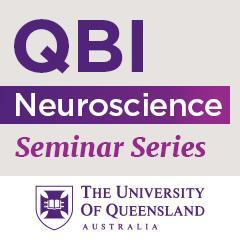A/Professor Ethan Scott, UQ : "Whole-brain imaging of sensory processing in larval zebrafish”
Speaker:
A/Professor Ethan Scott
Head, Laboratory for Neural Circuits and Behaviour, School of Biomedical Sciences, The University of Queensland
Title: "Whole-brain imaging of sensory processing in larval zebrafish”
Abstract:
Traditionally, neural activity has been monitored in great detail for one or a few cells (as in electrophysiology) or brain-wide by methods that do not provide single-cell resolution (such as functional MRI). The gap between these techniques has made it difficult to observe activity across large populations of neurons while regarding them as individual units. Because the nervous system is, ultimately, a highly interconnected network of neurons, this represents a major blind spot in our ability to describe the functioning brain.
Our group is interested in the neural mechanisms by which sensory stimuli are encoded and interpreted, and in how inputs from different sensory modalities are integrated in the brain. To address the problem described above, we have adopted optogenetic and microscopic techniques that allow us to perform calcium imaging across the entire zebrafish larval brain at single-cell resolution. In the work presented here, we have applied sensory stimuli to intact, alert larvae while observing the genetically-encoded calcium indicator GCaMP6. With house-built selective plane illumination microscopes (SPIM), we have observed large populations of neurons (~75,000 per animal), representing nearly the entire brain.
In this presentation, I will provide an overview of this approach, including its strengths and limitations. I will detail novel techniques that we have developed for applying visual, auditory, vestibular, and water flow stimuli to immobilised animals, and will present data on the the neural processing underlying these modalities. I will also introduce our early work in studying integration across modalities. Finally, I will describe a novel retino-thalamo-collicular visual circuit that we have identified as having a specific role in visually-mediated escape behaviour.
About Neuroscience Seminars
Neuroscience seminars at the QBI play a major role in the advancement of neuroscience in the Asia-Pacific region. The primary goal of these seminars is to promote excellence in neuroscience through the exchange of ideas, establishing new collaborations and augmenting partnerships already in place.
Seminars in the QBI Auditorium on Level 7 are held on Wednesdays at 12-1pm, which are sometimes simulcast on Zoom (with approval from the speaker). We also occassionally hold seminars from international speakers via Zoom. The days and times of these seminars will vary depending on the time zone of the speaker. Please see each seminar listed below for details.




